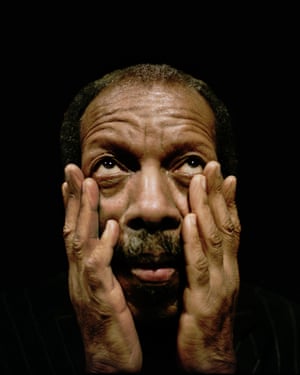Perhaps the most obvious question provoked by the news that Kendrick Lamar has been awarded the Pulitzer prize for music for his 2017 album Damn is not “why?” but rather “what took you so long?”
It has been 60 years since the birth of modern pop music, a period of time during which said modern pop music has established itself, in its multifarious configurations, as being an unquestionably important art form. Clearly no one expected an august institution like the Pulitzer to start handing out gongs to the Backstreet Boys or Motley Crue, but the notion that not a single work by any American pop artist over the last seven decades has been thought worthy is a pretty mind-boggling one. They gave an “additional citation” to Bob Dylan in 2008, and to Hank Williams in 2010 – a mere 57 years after the latter’s death – but the actual prize itself has remained almost exclusively the domain of classical music. In its entire history, there has only been one jazz winner, Ornette Coleman, who had to wait until 2006 to be considered worthwhile.

Then again, the Pulitzer has a longstanding reputation for being quite extraordinarily stuffy. The most celebrated example of its snobbery may have come in 1965, when the jury decided that no current music was worthy of an award, and attempted instead to give a special citation to Duke Ellington, in recognition of the groundbreaking body of work he had amassed over the preceding 50 years. Not, one would have imagined, a particularly controversial decision: by 1965, Ellington was rightly regarded as a straight-up, no-further-questions genius who had elevated jazz to an orchestral art form worthy of comparison with more “respectable” musical genres decades before. But the Pulitzer board refused to give out the award – indeed, it wasn’t until 1996 that an African American, George Walker, won the prize itself.
In 2004, then Pulitzer administrator Sig Gissler said they would be “broadening the prize a bit” so that it could be awarded to music that did not come from the European classical tradition: it no longer became obligatory for entrants to submit a score. Even so, there was no mention of pop music in their idea of what constituted “distinguished American musical compositions”. The official announcement of its new policy involved everything but: “The contemporary classical symphony to jazz, opera, choral, musical theatre, movie scores and other forms of musical excellence.”

This clearly makes Kendrick Lamar’s achievement all the more striking in its break with the prize’s dusty traditions: this year’s award hasn’t gone to some rarefied piece of electronica with classical pretensions, but a vastly successful double platinum-selling hip-hop album by an artist who packs out arena venues. Still, if you were going to pick a contemporary pop artist to storm the Pulitzer’s barricades, Lamar is an obvious choice.
They’ve chosen someone both at the top of his game and at the forefront of a post-Ferguson renaissance in righteously angry, politically engaged black music that genuinely bears comparison to soul music’s revered early 70s golden era. Furthermore, he’s proved that it’s possible to make a huge mainstream impact with music that never panders to the lowest common denominator, and never underestimates its audience’s intelligence. It is frequently complex, knotty, contradictory, claustrophobic and disjointed; it regularly nods towards black music’s history – referencing everything from the lusciously soft soul of the Chi-Lites to Outkast’s psychedelic take on rap – but never feels comfortingly familiar.
Perhaps the commercial success of such ostensibly uncommercial material is down to the fact Lamar makes music that perfectly reflects its era. He may have claimed that Damn represented a step back from the sociopolitical fury of its predecessor To Pimp a Butterfly, an album that ended up being lauded by the outgoing president of the United States – it even contained a backwards message complaining of “the pain in my heart carrying the burden for the struggle” – but Damn never shies away from addressing serious issues: black empowerment, protest, the Trump presidency, violence, inflammatory rightwing punditry. Anxious, scattered and disquieting, the musical backing sounds like living through 2017 frequently felt.
You could argue long into the night about whether or not the approval of an institution like the Pulitzer prize is antithetical to the messages contained within Damn, but an award that’s frequently courted accusations of rarefied, snooty irrelevance could hardly have picked a more relevant and impactful album to give its approval to.